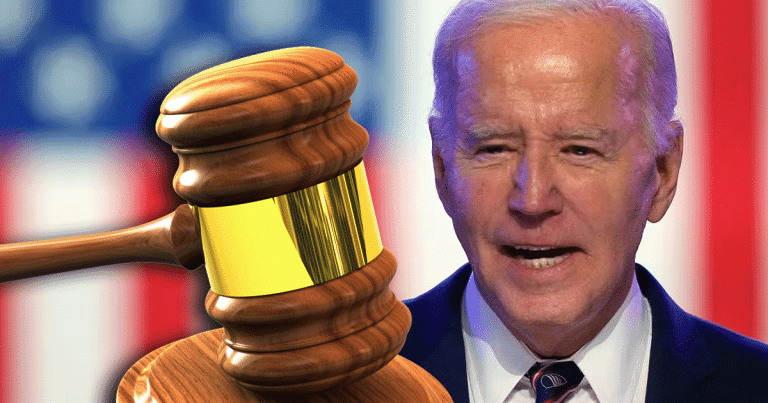
There’s something about the internet that gets bureaucrats excited. Maybe it’s all those wires and signals they don’t understand but desperately want to control. For years, politicians and government agencies have dreamed of reining in the web, claiming it’s for the public good.
They call it “fairness” or “openness,” but often it’s just about power. When politicians say they want to “level the playing field,” you might want to check your wallet—and your Wi-Fi.
The Government’s Love Affair with Regulation
In the Biden years, that regulatory itch turned into a full-blown rash. From social media platforms to broadband providers, nothing was safe from the government’s grasp. With Biden soon to leave office, you better believe this one issue he was hoping would get through without notice.
But every now and then, common sense makes a surprise appearance. It happened this week, and it came with a resounding “no” from the Sixth Circuit Court of Appeals.
The Court Drops the Hammer
The Sixth Circuit Court of Appeals just told the FCC to back off. In a 3-0 ruling, the court struck down the Biden-backed “net neutrality” regulations. The FCC wanted to treat broadband providers like phone companies, forcing them to follow rules about speed and access. But the court said, “Not so fast, pal.”
Judge Richard Griffin didn’t mince words. In a 26-page decision, he ruled that the FCC overstepped its authority. Broadband, Griffin explained, isn’t a “telecommunications service.” It’s an “information service.”
That’s a fancy way of saying broadband providers don’t have to play by the same rules as phone companies. And because they’re not common carriers, the FCC can’t boss them around.
The case revolved around the FCC’s decision to bring back net neutrality rules in April 2024. These rules blocked internet providers from slowing down or blocking certain websites. Sounds nice, right? But broadband companies argued it was government overreach. They took the FCC to court—and won.
A Battle of Philosophies
The ruling didn’t sit well with Democratic FCC Chair Jessica Rosenworcel. She called on Congress to step in and enshrine net neutrality into law. Rosenworcel claimed Americans want an internet that’s “fast, open, and fair.” But critics argue her version of “fair” looks a lot like more government meddling.
On the flip side, FCC Commissioner Brendan Carr, soon to be FCC chair under President-elect Donald Trump, called the decision a “win.” He slammed the regulations as a power grab by the Biden administration. Carr promised to roll back even more of Biden’s internet rules once he takes charge.
What Does It All Mean?
The debate over net neutrality is really about control. Do we want the government deciding how the internet works, or should we let market competition do its thing? Supporters of net neutrality argue it protects consumers. Critics say it stifles innovation and gives bureaucrats too much power.
The court’s ruling is a victory for those who prefer a free market approach. But don’t expect the battle to end here.
With Rosenworcel calling for congressional action and Carr preparing to lead the FCC, the fight over the internet’s future is far from over.
Key Takeaways:
- Court Pushes Back: The Sixth Circuit Court ruled the FCC doesn’t have the authority to impose net neutrality rules.
- New Leadership, New Direction: Trump’s FCC pick, Brendan Carr, vows to reduce government control over the internet.
- Bigger Battles Ahead: The decision sets the stage for a larger fight in Congress over internet regulations.
Source: Daily Wire


